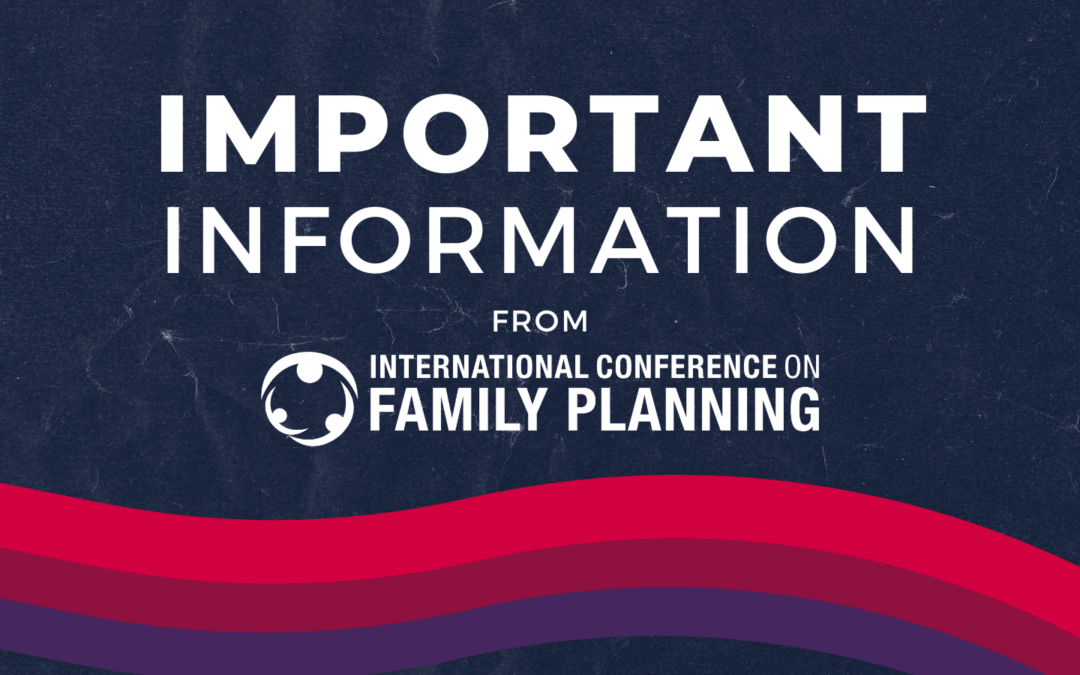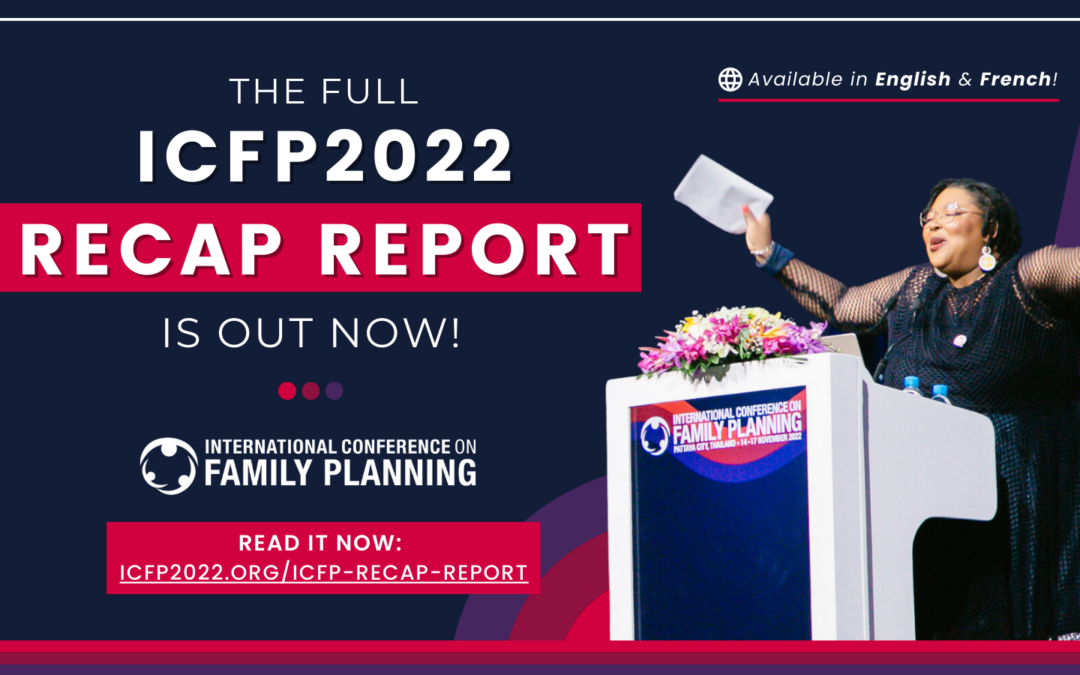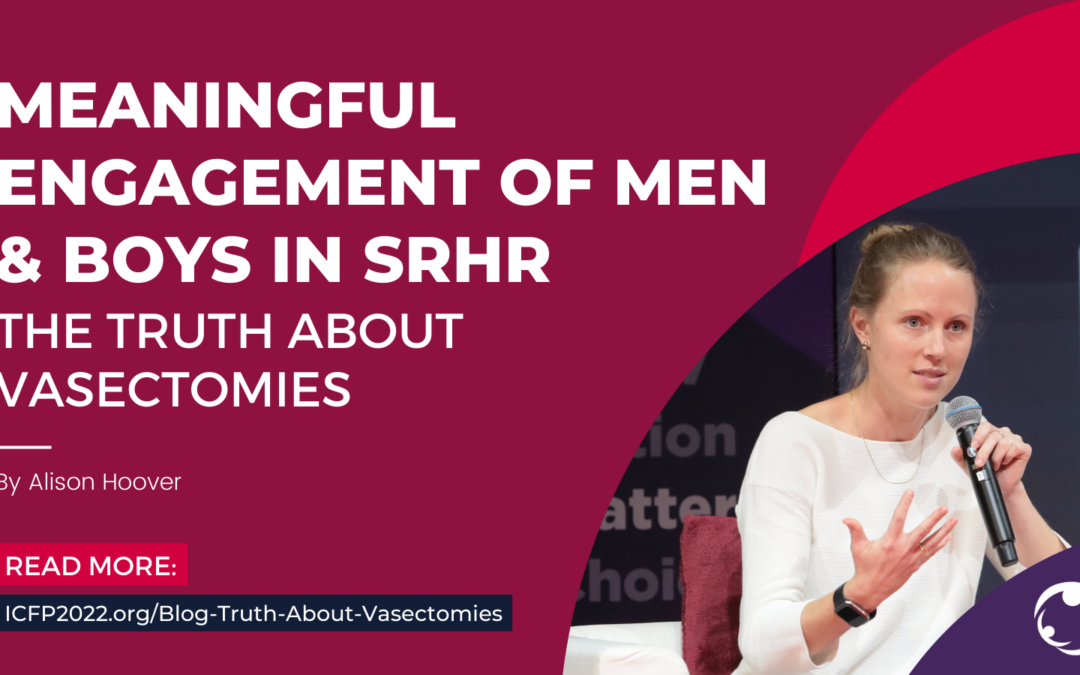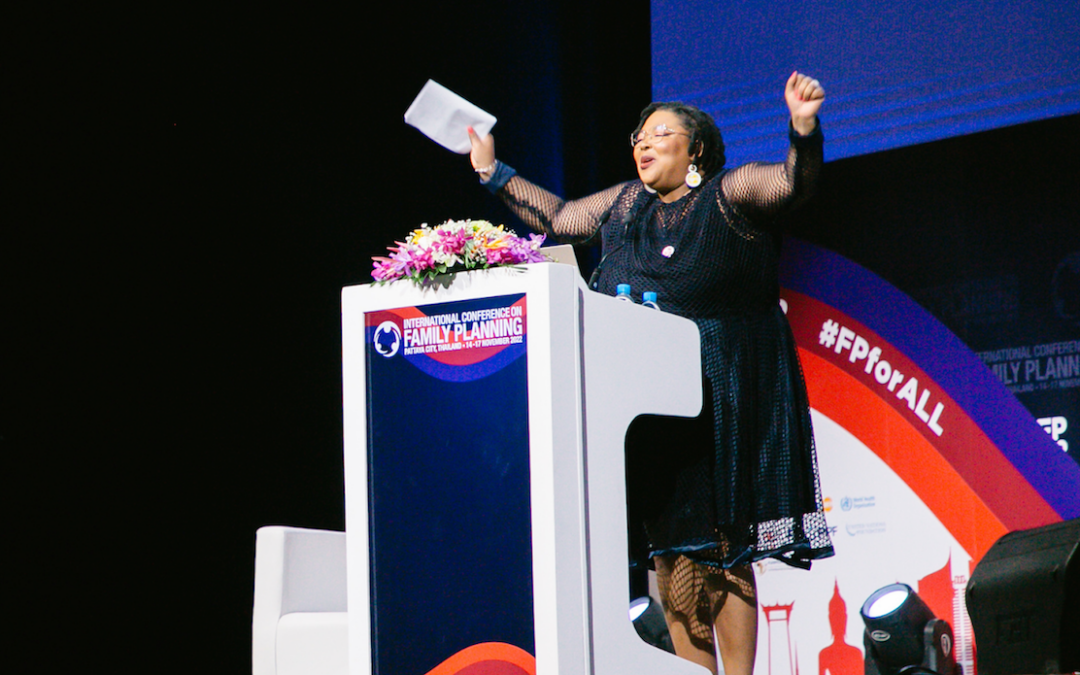WRITTEN BY DAYNA KERECMAN MYERS, MANAGING EDITOR, GLOBAL HEALTH NOW
This article originally appeared on Global Health NOW. Reposted with permission.
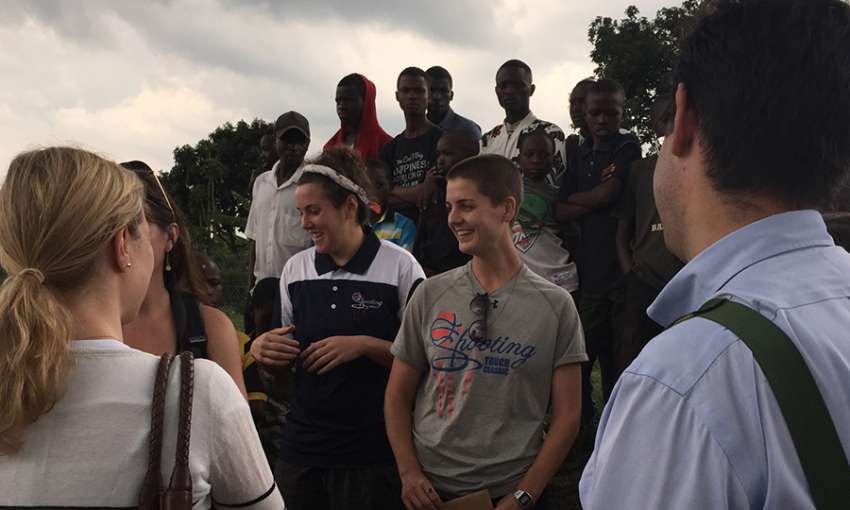
Shooting Touch’s Chloe Rothman (center left) and Lisanne Comeau (center right) describe their program to ICFP delegates on a site visit to the Nyamirama health center. Image by Dayna Kerecman Myers
NYAMIRAMA—Building a basketball court right next to the Nyamirama Health Center was no coincidence.
The strategically placed court is part of a deliberate effort to improve access to health education and services in Rwanda’s Kayonza district, visited by a busload of ICFP delegates Saturday. As part of the program developed by Shooting Touch, youth learn about basketball alongside health issues, including reproductive health.
Initially, the program met some resistance—including concerns about young women wearing shorts and spending their time playing sports, Shooting Touch’s senior program director Lisanne Comeau explained. Incentives—including support covering health insurance fees—helped win many residents over, and now participation in the health education classes is close to 100%.
The classes address a range of health issues, and aim to reduce the silence and stigma surrounding reproductive health issues. They work to break down misconceptions reported by women in the district, such as the claim that contraceptives cause back pain. Program results include an increase in knowledge of adolescent and reproductive health from a baseline of 48% to 89%. The district has also moved from last to first place in the number of women getting tested for HIV, following door-to-door campaigns, Comeau said.
Next door in the clinic, some 2 dozen peer educators gathered to tell the delegates how they’re helping increase access to family planning services. The program to deliver youth-friendly services, developed by Rwanda’s Ministry of Health and Partners in Health, selects a couple of young representatives from each district in the area to receive training in reproductive health care and family planning. They share the information with their peers back home, tackling the lack of awareness, stigma and fear that prevent some youth from seeking knowledge and services to prevent disease and pregnancy.
At another ICFP site visit on Sunday, ICFP delegates traveled to the Masaka secondary health post on the outskirts of Kigali, which was built to give people in the area access to a broader away of contraceptive choices. The area’s main health center, run by the Catholic Church, does not provide information about the full range of family planning methods, explained Athanase Rukundo, a medical doctor with Health Development Initiative and director of the secondary health post. The post offers an array of options, including injectable and implantable contraceptives, and educates residents about their choices. He said they are seeing an increasing number of clients at the post, which also collects data and feedback from users to better understand their needs and issues, like stigma, that prevent more people from accessing family planning services.
Back in Kigali, family planning organizations from around the world worked through the weekend setting up their exhibit booths and presentations, while several pre-conferences and side events helped set up an agenda for action at the conference.
At a Population Council side event titled Delivering Contraceptive Choice, Convenience, and Control, an array of panelists from around the globe took up the need for more contraceptive methods. Recounting stories of people who struggled to find effective, easily accessible contraception, Harriet Birungi, a medical anthropologist and the Population Council’s Kenya Country Director said, “We’ve failed them by not offering enough options in family planning.” In some cases, she added, contraceptives have become agents of social and political control, with husbands and in-laws restricting access to family planning at clinics and few available women-controlled options.
And often, governments are procuring methods and making decisions about what products are on the shelf, explained panelist Nomi Fuchs-Montgomery, deputy director of Evidence and Innovation for the Family Planning strategy at the Bill & Melinda Gates Foundation. The need is staggering, she noted—with a market potential of $175 billion that could impact 35 million women—and yet innovation has stalled. She called for more academics, policymakers, and civil society partners to raise their voices and resources. “This is the moment when we need to think forward,” she said. “We need our sector to be on the cutting edge of innovation. And it is going to take all of us for industry to respond … for new scientists to feel excited to work in this field,” and for more donors to feel compelled to invest in this space.
Coming Soon:
- FP2020 Report Release: FP2020 is set to release its latest report, revealing data on contraceptive access and use in the world’s 69 poorest countries. Check out GHN’s Twitter feed and our ICFP blog for a sneak peek of tomorrow’s GHN coverage.
- The opening ceremony takes place soon after GHN publishes today—at 9:30 a.m. EST. You can catch highlights on GHN tomorrow (subscribe here), or watch from afar: the livestream will be available here.
Global Health NOW’s Dayna Kerecman Myers, with Gates Institute support is among the journalists reporting from Rwanda at the 2018 ICFP. Check back every day this week for exclusives from the conference.
Join the tens of thousands of subscribers who rely on Global Health NOW summaries and exclusive articles for the latest public health news. Sign up for our free weekday enewsletter, and please share the link with friends and colleagues: http://www.globalhealthnow.org/subscribe.html


